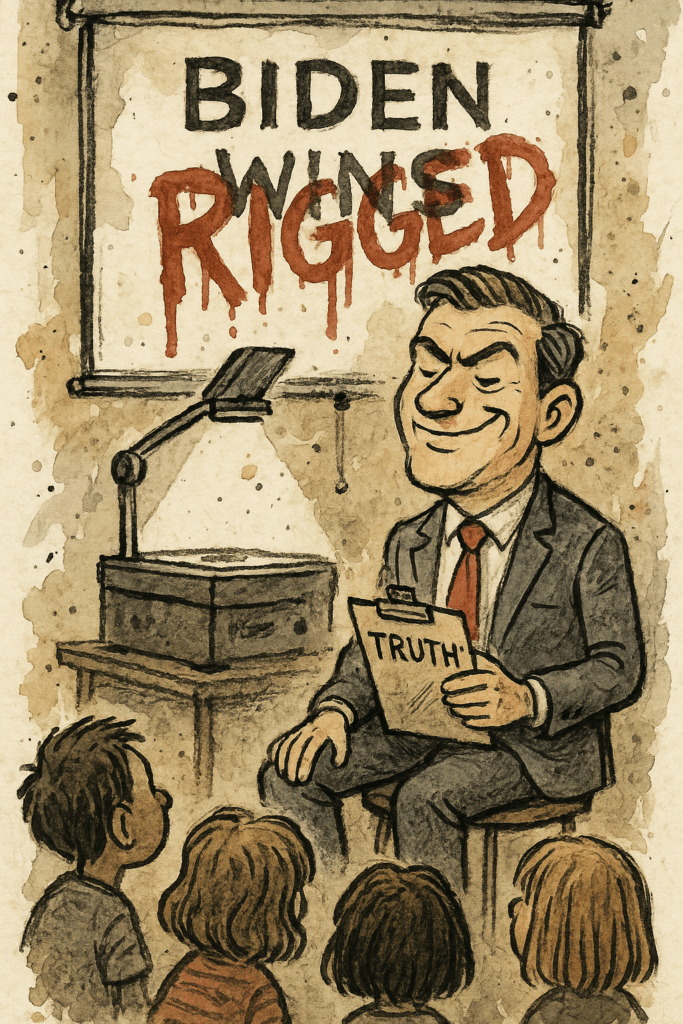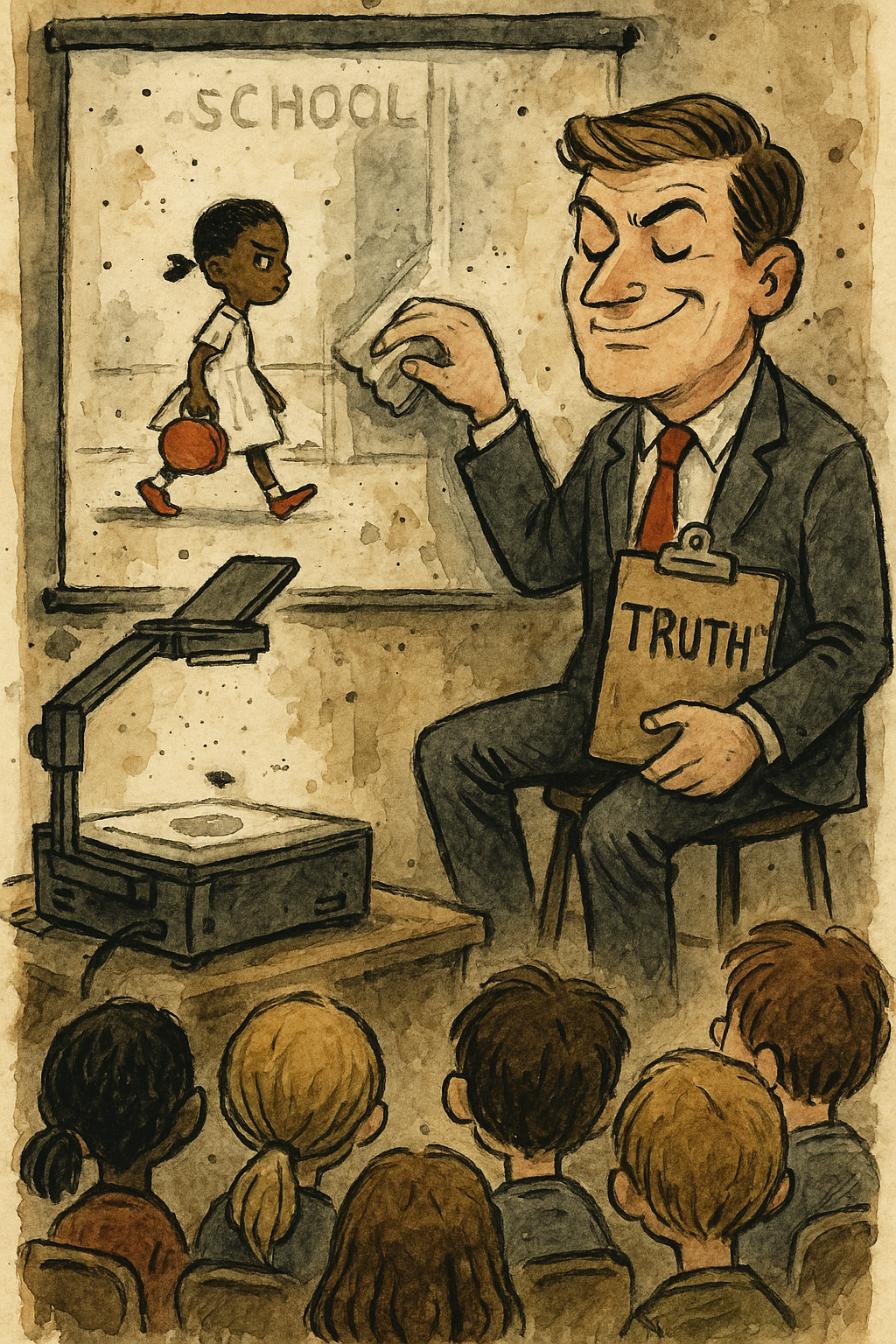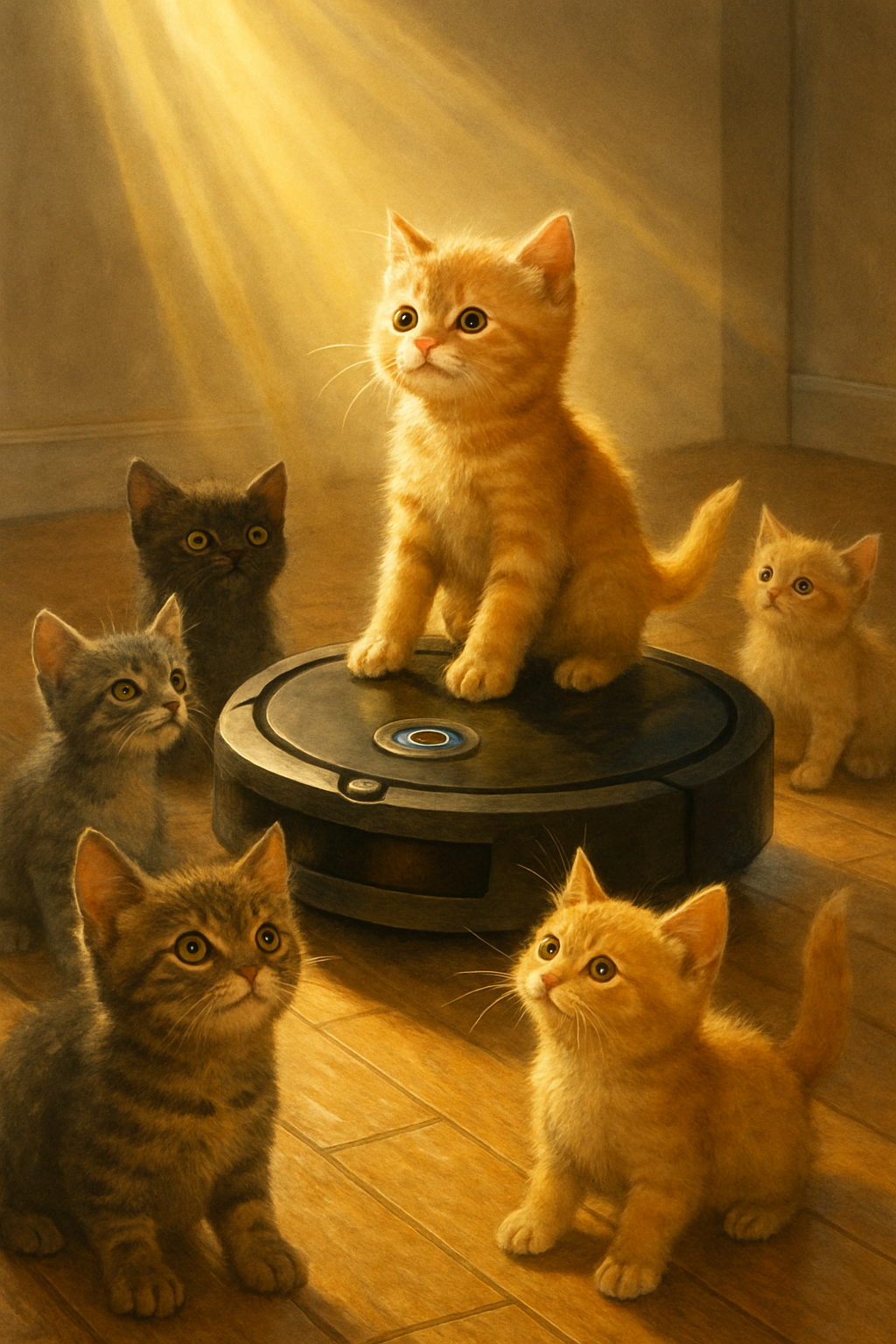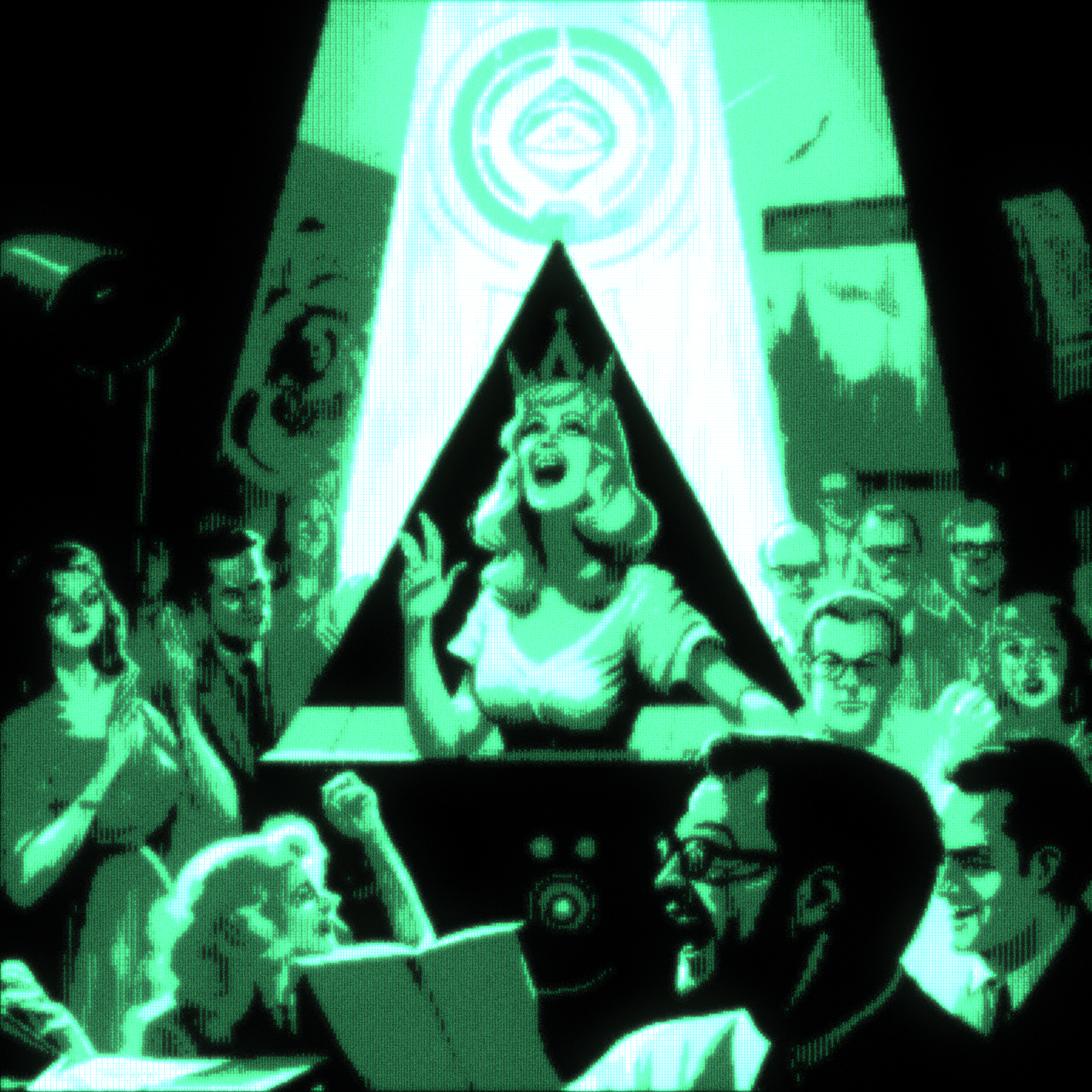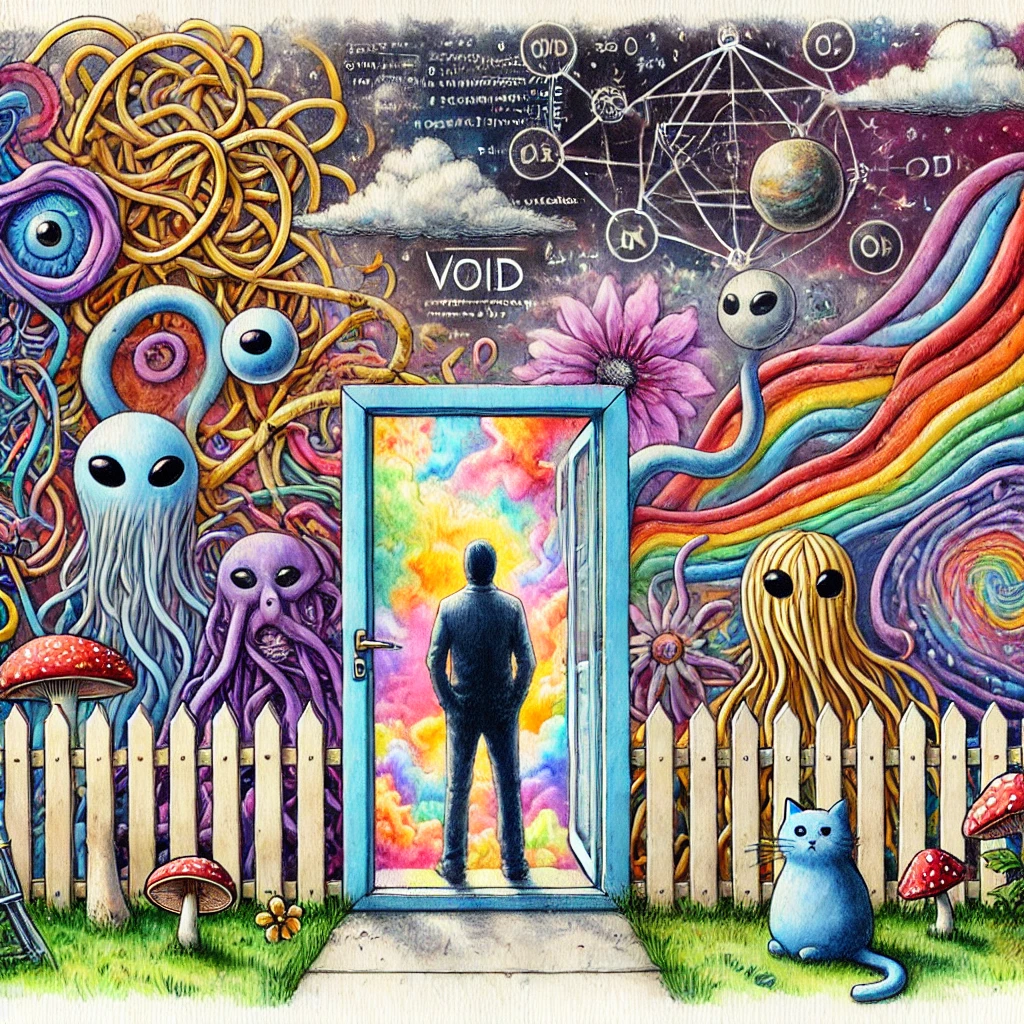“Those who cannot remember the past are condemned to repeat it.”
Yeah, that quote’s been floating around like a ghost with a grievance. But the problem isn’t just forgetting the past—it’s rewriting it. Worse, we’re grading kids on how well they memorize the edited script.
History, they say, is written by the victors. These days, it’s being rewritten by sore losers with media consultants and merch stores.
Which raises a question that ought to matter more than it does:
Does winning—or yelling the loudest—make you right?
Does it give you the moral license to reframe your failures as someone else’s crimes?
Take the current campaign against critical race theory. What it really boils down to is this: it’s uncomfortable being remembered as the villain. It’s unpleasant to be seen, historically, as the person hurling slurs and rocks at a six-year-old Black girl named Ruby Bridges, just for going to school. Or to be counted among the police and politicians who once backed the KKK with quiet nods and legal shields.
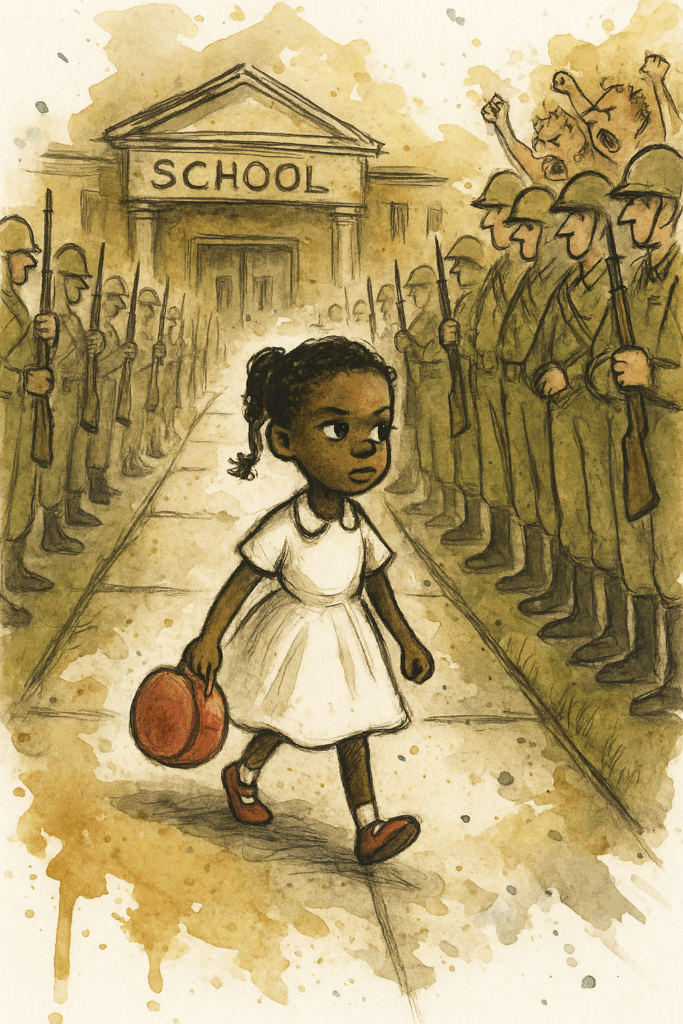
But discomfort isn’t injustice.
Being reminded of the truth doesn’t harm you—trying to bury it does.
And truth, inconvenient as it is, isn’t optional. It’s the floor. Lose that, and everything else caves in.
You can see the same pattern repeating with the aftermath of the 2020 U.S. presidential election. More than sixty lawsuits were filed claiming widespread fraud. None succeeded. Not because the courts were rigged, but because the claims showed up empty-handed—unless you count midnight tweets and pixelated conspiracy rants as evidence.
Even the lawyers wouldn’t bring that nonsense into court. Say that nonsense in a courtroom and you risk disbarment. Say it on cable news, and you get a book deal.
But here’s where it gets darker.
Now, in at least one state, schools are being directed to teach this election fraud fiction as fact. Not as theory, not as opinion, but as curriculum. Students will be tested on it. Partisan mythology is being uploaded directly into public education under the banner of “civic literacy.”
This isn’t a culture war sideshow—it’s a tectonic plate grinding beneath public trust.
Because once truth becomes a moving target, the entire structure collapses.
When rhetoric replaces history, and feelings outweigh facts, what’s left isn’t democracy. It’s managed perception. It’s brand management with a social studies label.
And if you think that only affects the “other side,” think again.
When public schools stop teaching logic, critical thinking, or even basic facts, the only ones left with access to reality will be the children of billionaires. Elite institutions will still teach real history, still train people to think. Everyone else gets handed slogans and sanitized myths, then told to smile and eat what’s on the tray.
We’re not headed for “first world” vs. “third world.” We’re headed for thinking class vs. serving class—divided not by merit, but by money. By who can afford to learn the truth, and who’s told they don’t need it.
This isn’t some dystopian warning.
It’s a Polaroid of right now.
And if we don’t start prioritizing truth over narrative—history over spin—we’re not just forgetting the past.
We’re erasing the future, too.
what’s left isn’t democracy. It’s managed perception. It’s brand management masquerading as civic education.
And if you think that only affects the “other side,” think again.
When public schools stop teaching logic, critical thinking, or even basic facts, the only ones left with access to reality will be the children of billionaires. Elite institutions will still teach real history, still train people to think. Everyone else will be handed myths and slogans and told to be grateful for the lunch tray.
It won’t be “first world” and “third world.” It’ll be thinking class and working class, divided not by merit, but by money. By who can afford to learn the truth—and who’s told they don’t need it.
This isn’t a warning about the future.
It’s a snapshot of the present.
And if we don’t start prioritizing truth over narrative—history over spin—we’re not just forgetting the past.
We’re erasing the future, too.
